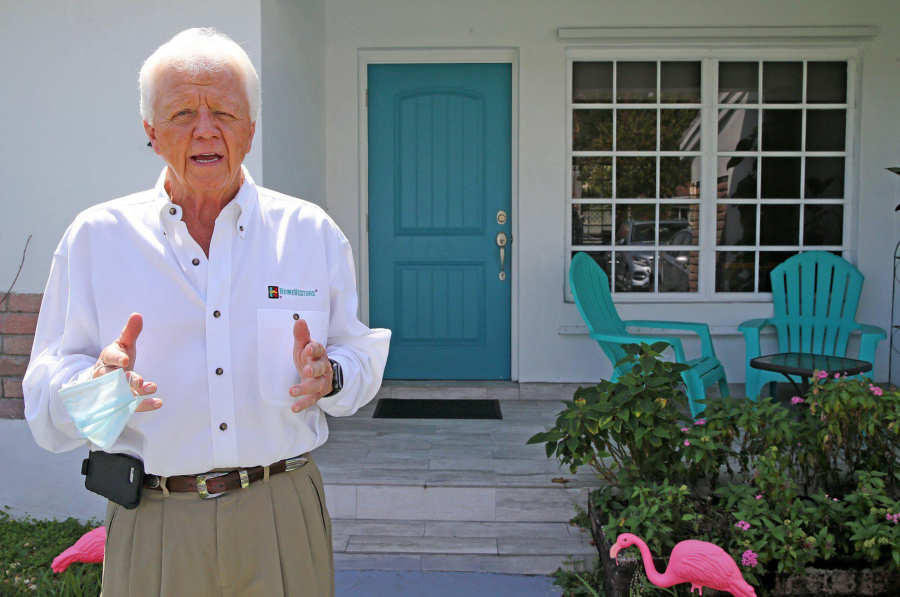Although the number of houses We Buy Ugly Houses sold in 2020 was 14% lower than 2019 due to the pandemic, the average sales price of homes grew by 10% year over year due to increased demand from buyers. The company ranked 36th in Entrepreneur magazine’s Top 500 Franchises in 2021, ahead of well-known brands such as Arby’s, Pizza Hut, Holiday Inn, Jiffy Lube and Denny’s.
Hicks said that the company stands out for two reasons: It specializes in a niche real estate market most brokers don’t care to deal in, and the We Buy Houses brand name immediately registers with customers due to the company’s billboard, TV and digital advertisements, which feature a cartoon caveman.
“We Buy Ugly Houses has 52 different trademarks on it, because our reputation depends on that name,” Hicks said. “If you see a sign on the side of the road, that’s someone trying to look like us. Those are bandit signs. There are a lot of people out there – companies and individuals – trying to do what we do. But our guys do well because they’re not trying to make a killing on one house. They’re buying a lot of houses. And every house we buy is paid for in cash, but we close through title companies, to make sure the sellers get their money.”
But the We Buy Ugly Houses name can backfire, too.
“The biggest problem we face is for people to understand the name,” said Don Cameron, owner of Hi-Land Properties, a Palm Beach County, Fla.-based real estate firm that was named the top We Buy Ugly Houses franchise in 2020, with 145 homes purchased and more than $41 million in total sales. “It can be a negative connotation. The challenge is to get the message to people that we’re talking more about an ugly situation than an ugly house. Most people don’t think of their homes as ugly.”



